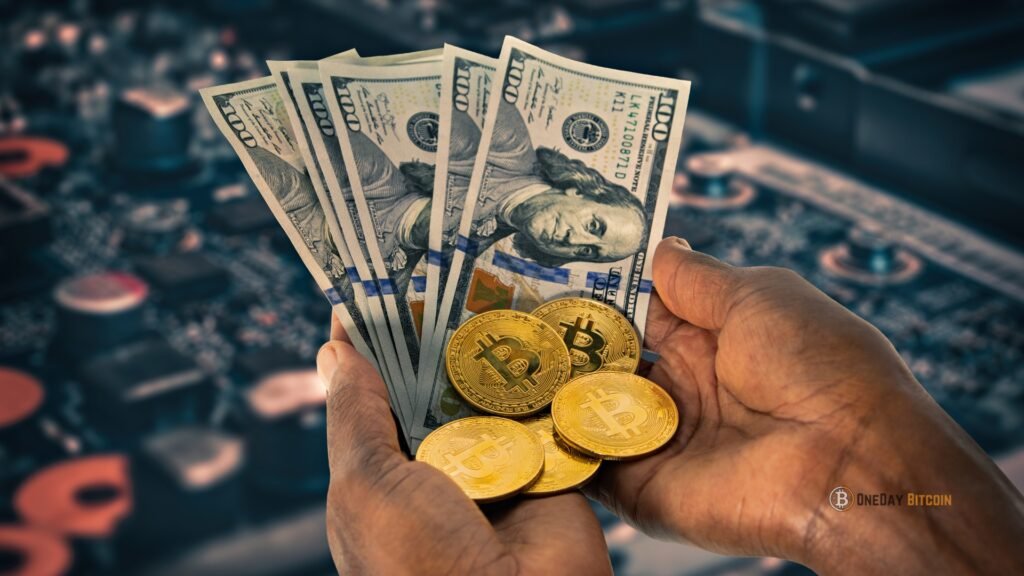The idea of states or financial organizations that possess Bitcoin as strategic reserves is emerging as a global trend. Though this method may be advantageous in hedging against inflation and diversifying reserves, experts warn that overdependence on Bitcoin may bring about significant issues, such as unbearable inflationary pressures on existing global economies.
The 10% Bitcoin Reserve Proposal
The concept of a state or a nation’s reserves, comprising 10% of them in Bitcoin, has become a hot topic among governmental economists and politicians. Proponents of the proposal assert that the asset’s finite $21 million capacity makes it a brilliant light against inflation and an essential resource for the national portfolio’s diversification. Unlike fiat currencies that are issued in endless amounts, Bitcoin’s scarcity, which causes its value to rise when depreciatory trends come out, offers resistance to depreciation, moreover, at the time of the economic crisis.
Such initiatives like the BITCOIN Act in the U.S. and similar policies in other countries spread out the understanding of digital assets’ critical role in financial systems. Nevertheless, sceptics foresee the risks: heightened instability, the potential emergence of speculative bubbles, and the backs of fiat-based monetary systems being broken. Massive purchases by governments could reduce the availability of Bitcoin in the market, pushing Bitcoin prices upwards and bringing uncertainty to other markets. Thus, in addition to the 10% solution, caution and diversification will remain vital to reduce the risk of the system’s collapse.
Potential Inflationary Impact
Supply Constraints and Price Volatility
The limited supply of Bitcoin, set to be no more than 21 million, is a scarcity-based price model. If the authorities gather many bitcoins, the severely restricted supply might get hit with extreme demand shocks, which can cause price jumps. This boom might result in a speculative bubble, causing a large-scale financial recession.
Currency Devaluation
Through high-volume conversion of fiat currency to Bitcoin, a situation may arise where everyday users lose trust in the value of traditional currencies. This is follow by the depreciation of fiat currencies, which might inflate the economy of countries that mainly base the monetary part on stable economic policy. This is akin to what has been observing earlier, where alternative currencies were less of a regulator for central banks in setting the money supply. Consequently, the country couldn’t exert sovereign control over the economy.

Historical Lessons and Comparisons
Gold as a Reserve Asset
Bitcoin is like gold because it is seen as a “store of value,” which is its perceived function. On the other hand, gold has the long-standing advantage of being a stable asset, while Bitcoin is still very volatile. The rapid adoption of Bitcoin as a reserve asset could worsen inequalities, much like the speculative gold rushes of the past.
Previous Cryptocurrency Reserves
Countries experimenting with crypto reserves, such as El Salvador’s adoption of Bitcoin, have faced challenges. The moves highlight Bitcoin’s strengths as a vehicle of financial inclusion. Yet, the same kind of projects can cause problems of increased market dependency and fiscal vulnerabilities.
Diversification
Diversifying reserves across multiple assets, including Bitcoin, other cryptocurrencies, commodities, and traditional financial instruments like bonds, is essential to managing risk. This approach minimizes overexposure to Bitcoin’s volatility while ensuring financial stability. By balancing digital and conventional assets, institutions can achieve long-term resilience without compromising economic security.
Regulatory Oversight
Effective regulatory oversight is essential for integrating Bitcoin into national reserves while safeguarding economic stability. Clear policies can mitigate risks like speculative bubbles and fraud, ensuring the responsible adoption of digital assets. By fostering transparency and compliance, regulations build trust, balancing innovation with protections for financial systems and investors.
Gradual Integration
Gradually integrating Bitcoin into reserves allows governments to minimize market disruptions while assessing its long-term viability. Phased acquisitions help reduce sudden demand spikes and price volatility, providing a controlled environment to evaluate economic impacts. This measured approach supports smoother adaptation to digital assets within existing financial frameworks.
Also Read: Why Bitcoin Could Fall To $52,000: Crypto Analyst
Conclusion
Although a 10% Bitcoin reserve could signal the introduction of new financial strategies, it may also cause hyperinflation if not carefully controlled. Policymakers and institutions should be prudent in showing interest and ensuring they can protect the economy from any possible risks by resorting to approaches characterized by caution and vigilance. 10% Percent Bitcoin Reserve: While surrounding reserves are ongoing, the international financial network must be ready for digital currency challenges and opportunities.
[sp_easyaccordion id=”1515″]


